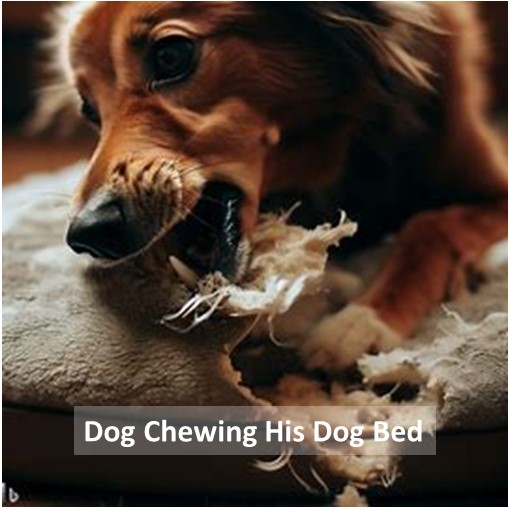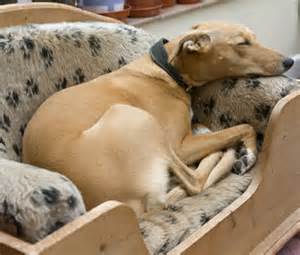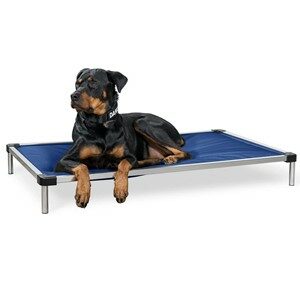How To Stop Dogs From Chewing Their Beds
Chewed Up Beds May Be A Thing of The Past!
Introduction
Dogs are known for their chewing habits, but when it comes to destroying their own beds, it can be both frustrating and costly for pet owners. Understanding why dogs chew their beds and implementing effective strategies to curb this behavior is essential for maintaining a peaceful and comfortable environment for both you and your furry friend. How to stop dogs from chewing their beds will provide you with some reasons why this behavior is seen in your dog and offer solutions you can use to prevent it from happening in the future. When you have spent money on a plush bed for your dog, it can be very frustrating to see that he has chewed it to pieces! Rather than getting mad at your little pup or dog, it is crucial to understand why dogs chew their beds so that you can get them to stop doing it. In this article, how to stop dogs from chewing their beds, we will explore the reasons behind this behavior and provide practical tips on how to stop dogs from chewing their beds.
Reasons Why Dog’s Chew On Their Beds
Now, let’s look and explore the actual reasons your dog displays this behavior. Before diving into the solutions, it’s crucial to understand the underlying reasons why dogs chew on their beds. Here are some of the common causes:
- Teething: Just like human babies, puppies go through a teething phase where they experience discomfort and itchiness in their gums. Chewing helps alleviate these symptoms. When a puppy is between the age of four and six-months-old, he will chew instinctively to help his teeth navigate through the growing process. A good teething toy will help here.
- Boredom and Anxiety: Dogs may resort to chewing as a way to alleviate boredom or anxiety. They may find comfort and entertainment in the act of chewing their beds. This may be one of the main reasons why your dog is chewing on their bed. It is vital to remember that most dogs require some stimulation for both the body and mind. If, for example, your dog is not being walked regularly, does not have lots of toys to play with, they may become destructive out of sheer boredom or because they are trying to get the attention from their owners. This attention-seeking can also be a consequence of separation anxiety. Some dog breeds suffer from separation anxiety more than others. Contact your vet to determine if your dog breed is one of them or not.
- Lack of Exercise: Dogs need regular exercise to release pent-up energy. If they are not adequately exercised, they may engage in destructive chewing behavior. One of the best things you can do here is to exercise your dog more. It is vital that your dog gets enough exercise and is not isolated for too long, especially if you are crating him. Beforehand, exercise him vigorously for between 30 and 60 minutes. You should also make sure that your dog is never in a crate for more than eight hours without a stretch.
- Health Problems: Dogs with dental issues, such as gum disease or toothaches, may resort to chewing objects, including their beds, to alleviate the pain. If you cannot trace the matter back to a lack of enrichment in terms of your dog’s daily activities, there is always the worry that an underlying health problem could be the issue. It is a good idea to discuss this with your vet if you suspect any type of issue, such as a gastrointestinal problem or a compulsive chewing disorder.
- Hunger: A dog that is on a diet that restricts his calories may destroy objects or chew them in an attempt to find added sources of nutrition. Dogs tend to direct this sort of chewing toward objects that smell like food or are related to food. Of course, this shouldn’t be the case with a dog bed, yet hunger can cause a reaction like this, so it is a possibility not to overlook.
What Can I Do – Possible Solutions
Now, that we shared some possible reasons what can cause your dog to chew his bed, let’s look at some possible solutions that you can actually use.
Provide Appropriate Chew Toys
One very effective way to redirect your dog’s chewing behavior is by providing appropriate chew toys. Choose toys specifically designed for aggressive chewing dogs, such as durable rubber or nylon toys. These toys should be robust enough to withstand heavy chewing. Introduce the toys to your dog and encourage them to chew on them instead of their bed or even other things around the house. You can use positive reinforcement, such as treats or praise, can further reinforce this behavior.
Provide Exercise and Mental Stimulation
Regular exercise is crucial for a dog’s overall well-being and can help reduce destructive behaviors, including chewing. Engage your dog in daily physical activities such as brisk walks, jogging, or play sessions at the park. Additionally, mental stimulation is equally important. Provide puzzle toys, interactive feeders, or treat-dispensing toys to keep your dog mentally engaged and prevent boredom. This is true when you are away. Dogs like to please their owners and one great way to do this is using training sessions as part of his daily routine. When doing training sessions, be sure to take along his favorite treat. Keep the training sessions short and at the same time so your dog looks forward to them.
Avoid Confusion
When it comes down to it, you need to make sure your dog knows the difference between things that he can and cannot chew. This is vital to avoid confusion. A lot of pet owners may provide their dog with items around the house they no longer want, such as discarded cushions and old shoes. However, your dog is not going to know the difference between these cushions and shoes compared with the cushions on your sofa and the shoes you still wear. You cannot expect your dog to be able to know the difference between the two. This is where you come in and help to avoid any confusion.
Create a Comfortable Environment
To discourage your dog from chewing their bed, ensure they have a comfortable sleeping area. Choose a bed made from durable materials that are difficult to chew through, such as heavy-duty canvas or tough nylon. Avoid beds with fluffy stuffing or easily accessible zippers that may entice your dog to chew. Opt for elevated beds or orthopedic mattresses, which are more resistant to chewing. Keep the dog bed out of the way of heavy traffic areas.
Utilize Taste Deterrents
Taste deterrents can be another effective way in preventing dogs from chewing their beds. These products have a bitter taste that discourages dogs from mouthing or chewing objects. Apply a taste deterrent spray or gel on the bed’s edges or any areas that your dog tends to focus on. Ensure that the deterrent is safe for dogs and doesn’t damage the bed material. You can pick up these deterrents at your local pet store.
Address Boredom and Anxiety
This is one of the biggest areas that most dog parents have to deal with. If your dog chews their bed due to boredom or anxiety, it’s crucial to address these underlying issues. Spend quality time with your dog, engaging in interactive games and training sessions. Provide them with plenty of toys and rotate them regularly to keep their interest. Additionally, consider crate training or using calming aids like pheromone diffusers or soothing music to alleviate anxiety. Regarding music, studies have shown th at classical music is one of the most calming types of music for dogs. Metal and rap music, on the other hand, tended to rile dogs up and encourage barking. The specific tempo that has been noted to calm dogs is roughly 50-60 beats per minute. Avoiding music with deep bass or lots of clashing sounds is important, because it could remind dogs of thunder.
Upgrading The Dog Bed
Upgrading the dog bed could also be a solution. Did you know that you can get chew-proof dog beds? Some dogs love to rip the filling out of products. No matter how much you try, you just can’t seem to prevent it. In this case, it is beneficial to look for extra durable dog beds that have added layers and use more robust materials so that they can withstand the most destructive chewers. Some manufactures offer a chew-proof warranty on their beds against aggressive chewing dogs.
Crates
Crates are meant to be a safe space for your dog and, with the proper training and dedication, you can train your pup to run to their crate when left alone (great for separation anxiety) or when they are feeling anxious, such as during a loud thunderstorm. It is best to opt for a crate that is big enough for your pet to turn around in, as tight, confined spaces can add to their anxiety. It may also help leave a piece of clothing with your scent inside the crate, to entice them to use it when stressed. It is best to place the crate in a low-traffic zone of your house or a secure room for added comfort.
Leaving the Radio or Television On
Here is another possibility to try, It is recommend that you leave the radio or television on when you’re not at home. Doing this can have a calming impact on an anxious dog throughout the day. It helps them to feel like they are not alone. You can get music for the specific purposes of soothing dogs. Regarding music, studies have shown that classical music is one of the most calming types of music for dogs. Metal and rap music, on the other hand, tended to rile dogs up and encourage barking. The specific tempo that has been noted to calm dogs is roughly 50-60 beats per minute. Avoiding music with deep bass or lots of clashing sounds is important, because it could remind dogs of thunder. A reminder, not all dogs may like music or TV background noise. Try it first before using it when you are away.
Seek Veterinary Assistance
If your dog’s chewing behavior persists despite your efforts, it’s advisable to consult your veterinarian. They can assess if any underlying medical conditions, such as dental problems, are causing the behavior. A veterinarian can also provide further guidance or recommend behaviorists or trainers who specialize in chewing problems.
Don’t Punish Your Anxious Dog For Chewing Their Bed
What if your dog is chewing his bed because of anxiety? Destructive chewing can often be related to stress and separation anxiety. If something is making your dog feel uncomfortable or nervous, this could easily be a stressors that has resulted in him compulsively chewing his dog bed. You’re going to need to be patient here and go the extra mile when dealing with this sort of destructive chewing. Deterrents, toys, and redirection are not going to be enough on their own. We certainly do not recommend punishing your dog under any circumstance. If you punish your dog through the likes of yelling, spanking, or muzzling, the chances are that this is going to make the chewing worse, especially if your dog has severe anxiety. In some cases, it will require professional help.
Conclusion
Stopping dogs from chewing their beds will require some patience, consistency, and understanding and knowing what the underlying cause is. By identifying the reasons behind their behavior and implementing appropriate strategies, you can effectively redirect your dog’s chewing habits which is your goal. Providing suitable chew toys, regular exercise, mental stimulation, creating a comfortable environment, using taste deterrents, and addressing boredom or anxiety can all help to contribute to breaking this destructive habit. Remember to reward positive behavior and seek professional assistance if needed. With time and effort, you can help your dog overcome their bed-chewing tendencies and create a harmonious living space for both of you and other family members.
Shop Music For Dogs
You can shop for music that can calm your dog by clicking on a link below. You will be taken to Amazon where you can place the order. While there, you can read the customer reviews and answered questions.
As Amazon Associate we earn from qualifying purchases.

Through A Dogs Ear 3-CD Boxed Set
Through A Dogs Ear 3-CD Boxed Set
Through A Dogs Ear 3-CD Boxed Set










